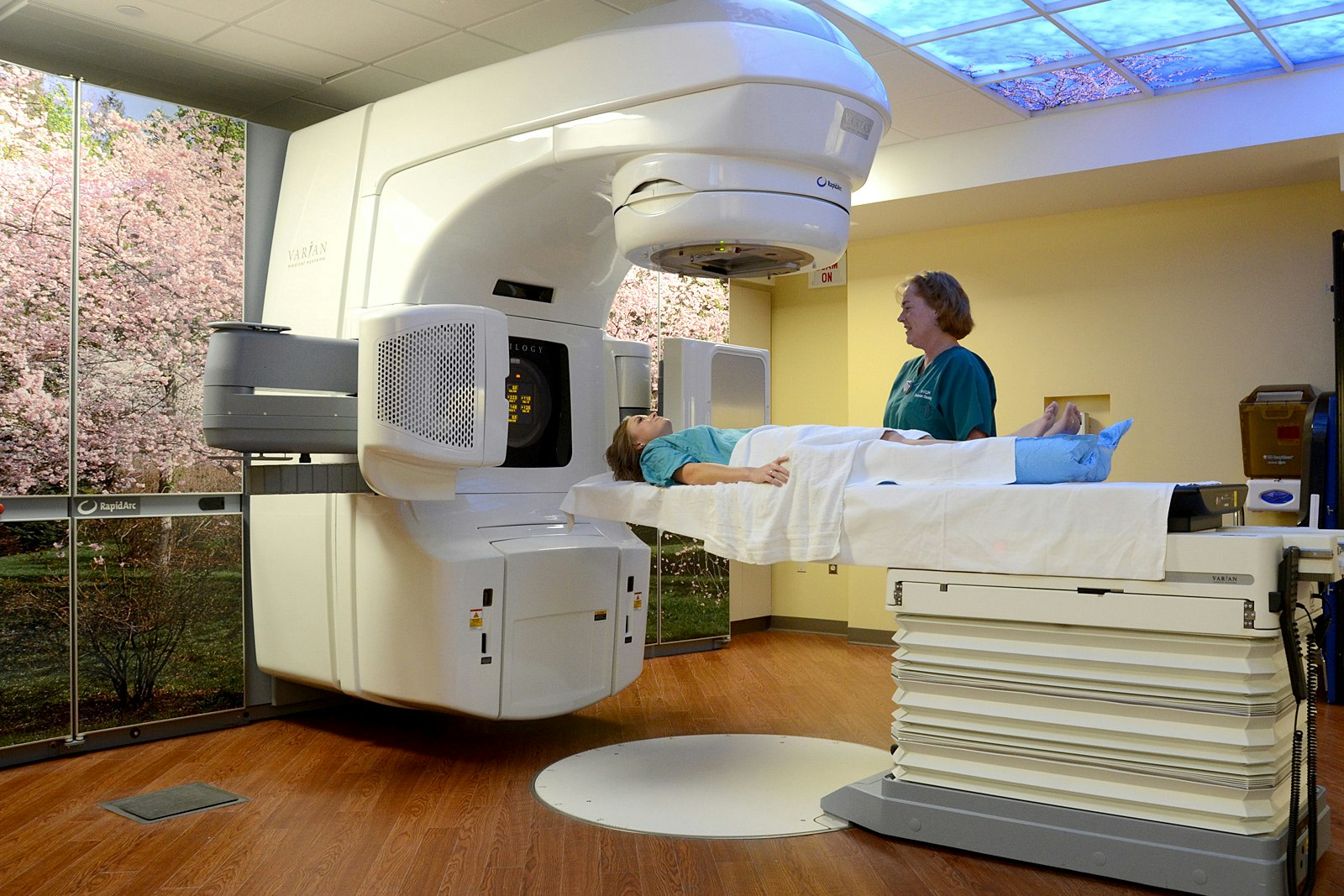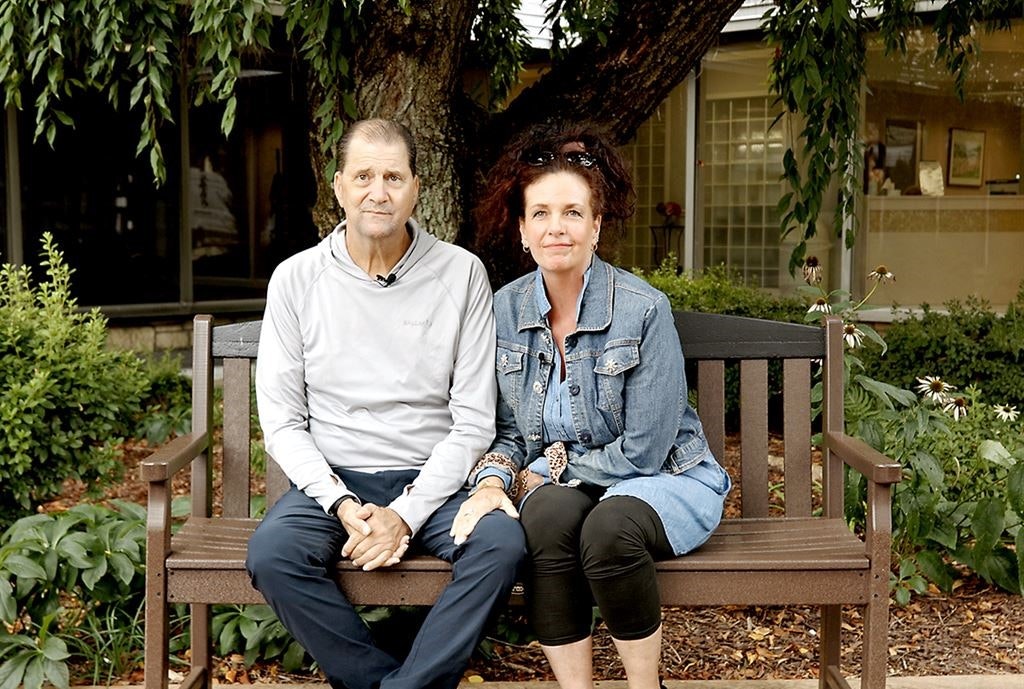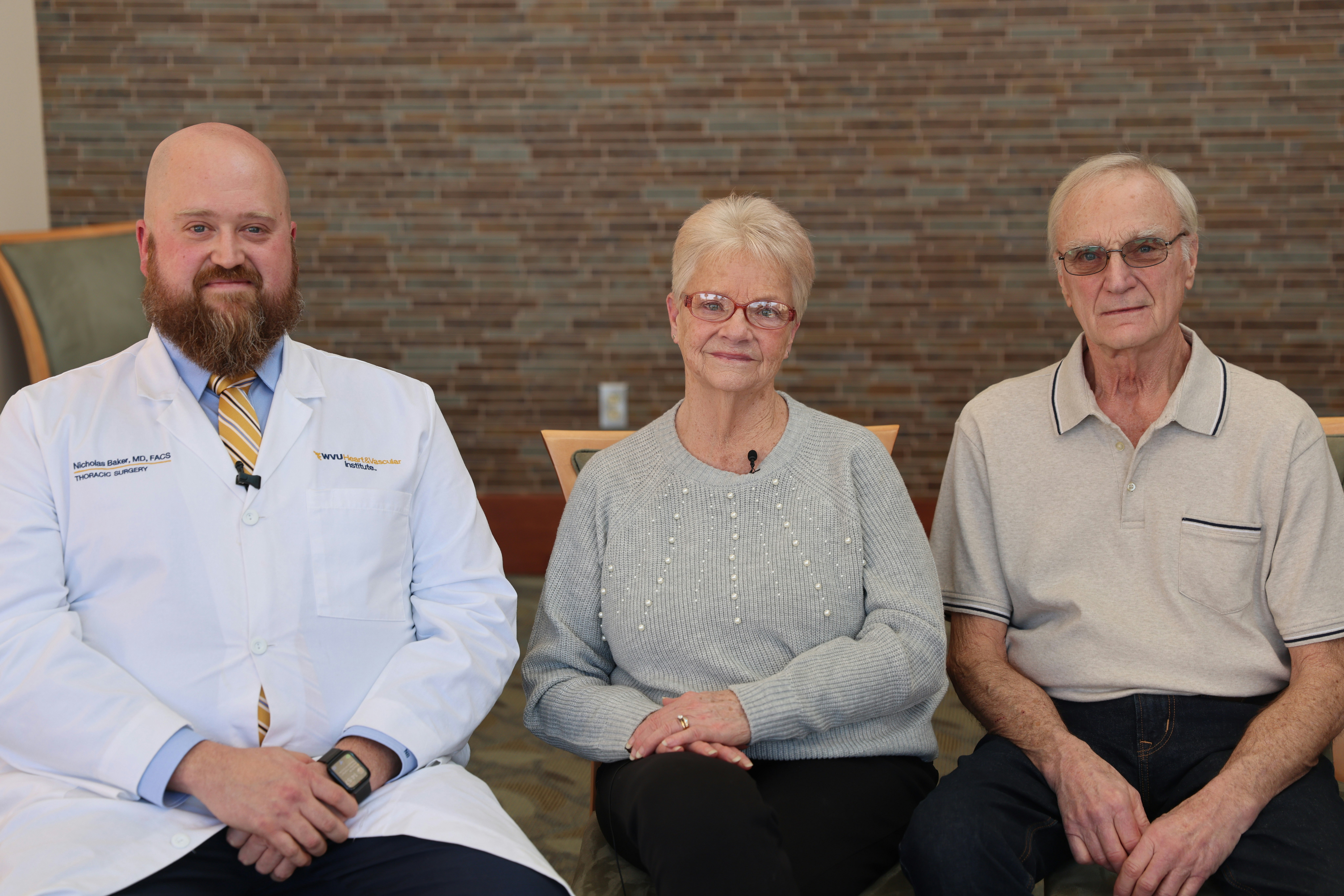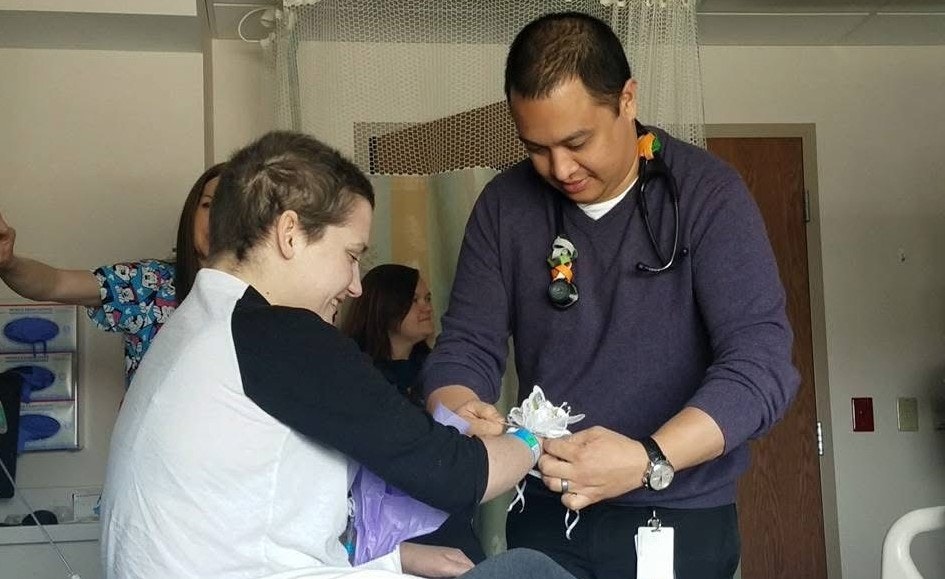At the WVU Cancer Institute, we lead the region in the treatment of bone and soft tissue sarcoma. Our team of medical and radiation oncologists, surgeons, and nurses work with you to create a care plan to meet your exact needs.
A sarcoma is a rare cancer that starts in the connective tissue of the body, which includes the bone, cartilage, soft tissues of your muscles, blood vessels, and nerves. There are over 50 different types of sarcoma. Researchers are working to uncover their causes.
Types of Bone and Soft Tissue Sarcomas We Treat
Sarcomas are classified into two main kinds — bone sarcoma and soft tissue sarcoma. At the WVU Cancer Institute, we treat all types of bone and soft tissue sarcomas.
Bone sarcomas
Bone sarcoma is a type of cancer that begins in the bone. It is different than secondary bone cancer that spreads to the bone from another body part, which is usually called metastatic bone cancer. Bone sarcoma is fairly rare, but one of the most common types of bone sarcomas is osteosarcoma — often found in the thigh, upper arm, or shin. Other types of bone sarcoma we treat are Ewing’s sarcoma (found in bone and soft tissue) and chondrosarcoma, which is found in the cartilage.
Certain genetic syndromes can increase the risk of bone sarcomas. These genetic syndromes can include Paget’s disease, neurofibromatosis type 1, Li-Fraumeni syndrome, and tuberous sclerosis, which can increase a person’s risk of developing bone cancer later in life.
Soft tissue sarcomas
Soft tissue sarcoma is a type of cancer that develops in the muscles, fat, blood vessels, tendons, and fibrous tissues. It is a rare cancer that primarily occurs in the legs above the knee. When soft tissue sarcomas spread to surrounding tissue, it can spread (metastasize) to other organs and form a secondary tumor. The most common site of metastatic disease is the lungs.
Researchers are working to determine the cause of soft tissue sarcoma. Research has shown a link between some herbicides and high doses of radiation that could possibly put people at greater risk for developing soft tissue sarcomas.
Benign soft tissue tumors
Not all soft tissue tumors are cancerous. Noncancerous (benign) soft tissue tumors are more common than bone tumors. They can be found anywhere in your muscles, ligaments, nerves, or blood vessels. Benign soft tissue tumors can be aggressive. It’s important to talk to your doctor if you experience pain in any areas of your soft tissue. The most common types of benign soft tissue tumors include:
- Elastofibromas
- Fibromas
- Granular cell tumors
- Lipomas
- Neurofibromas
Diagnosing Bone and Soft Tissue Sarcomas
Our specialists have years of experience diagnosing bone and soft tissue sarcomas. Depending on your symptoms, we use the latest advances to accurately diagnose sarcoma. Soft tissue sarcoma is diagnosed through a surgical biopsy. Bone sarcomas are diagnosed using several different approaches, including:
- Blood tests — Doctors use a blood test called a complete blood count to measure the number of different types of blood cells in your body. Doctors can detect blood cancers using this test. Doctors also use cytogenetic analysis — a blood test that looks at fluid, tissue, and cells to see if any chromosome changes might be caused by cancer. Other blood tests doctors may perform to detect cancer include flow cytometry and immunophenotyping.
- Advanced imaging — Doctors use ultrasound, CT, MRI, and PET scan to detect signs of disease and see whether cancer has spread to other areas of your body, such as your lymph nodes or lungs.
- Biopsy — Doctors use this test to examine tissue under a microscope to determine whether cancer is present. During a biopsy, a doctor removes a small sample of tissue at the tumor site to analyze in a lab. Biopsy results help oncologists plan the best treatment for you. There are several different biopsy types including image-guided biopsy, fine-needle aspiration biopsy, core needle biopsy, excisional, shave, and endoscopic biopsy.
Treatment for Bone and Soft Tissue Sarcomas
Our experienced team designs a treatment plan that addresses your specific needs, depending on the type of sarcoma you have. We consider the cancer type, the location and size of the tumor, your age, and whether the cancer is new or recurrent. We often treat soft tissue sarcomas using surgery, radiation therapy, and chemotherapy. We treat some sarcomas, such as gastrointestinal soft tissue sarcoma (GIST), using immunotherapy. Other treatments may include:
- Medical oncology — Medical oncology includes chemotherapy, immunotherapy, targeted therapy, and hormone therapy. Our doctors use the latest in anti-cancer medicine to destroy cancer cells. We also use chemo/immunotherapy to slow cancer growth and shrink tumors before surgery. Sometimes, we use medication alongside other treatments such as radiation or after surgery to destroy any cancer cells that might remain.
- Radiation oncology — We use radiotherapy treatments to target, destroy, and shrink many types of cancers. The treatments use a linear accelerator to produce precise, high-energy rays that target the exact area of cancer and spare healthy cells. Radiation oncology includes 3D conformal radiotherapy, image-guided radiation therapy, intensity-modulated radiation therapy, intraoperative radiation therapy, and brachytherapy.
- Surgery — Surgery can help us diagnose, stage, and treat many tumors. We also use it to relieve symptoms caused by tumors that press on a nerve or bone. If you have a high risk of developing cancer, we may recommend surgery to remove tissue or organs before cancer develops. Our surgeons offer the latest minimally invasive and robotic surgical approaches. We also offer the latest in reconstructive surgery to help recreate the part of your body affected by cancer.
- Immunotherapy such as CAR T-cell therapy — Your immune system has cells called T cells that are used to attack cancer cells. During this immunotherapy, our doctors modify your T-cells in a lab, making them able to bind to and kill cancer cells. When your cells are modified, they produce special structures called chimeric antigen receptors (CARs). We use this type of therapy in some forms of aggressive or relapsed non-Hodgkin lymphoma or lymphoblastic leukemia.





